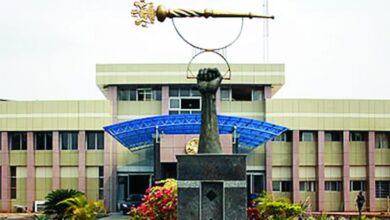UDS triumph a wake-up call for institutional sports development
Ghana’s football history was given a refreshing boost when the University for Development Studies (UDS) lifted the 2025 World University Football Championship trophy, in Dalian, China.
In the finals against Brazil’s University of Paulista on Sunday, September 28, UDS won 2-1 in an extra-time gruel.
The 2025 FISU University World Cup Football held in Dalian had 24 universities from 17 countries across five continents participating.
This remarkable achievement is not just a victory for the institution, but a monumental moment for Ghana and indeed the African continent.
It demonstrates that when talent is properly nurtured, even outside the mainstream professional leagues, Ghana can produce champions on the world stage.
The success of UDS must serve as a wake-up call to our national football authorities in general and the National Sports Authority (NSA) in particular.
This is more than imperative now than ever, given the fact that in countries like the United States of America and Jamaica, no athlete can easily become a professional unless he or she has gone through the college system.
For decades, scouting for the Black Stars has concentrated heavily on professional leagues in Europe and the local Premier League, often overlooking the fertile grounds of our universities and other tertiary institutions.
Yet, the UDS victory proves beyond doubt that these institutions are brimming with disciplined, talented, and tactically astute young players who, with the right exposure, can compete and triumph internationally.
University sports have often been seen merely as extracurricular activities, but UDS has shown that they are a critical development pipeline. University players are unique in that they combine academic discipline with athletic excellence.
This blend brings maturity, mental resilience, and leadership, qualities that are sometimes lacking in players sourced solely from traditional club systems. If properly integrated into the Black Stars setup, such players could bring a new dynamism to the national team.
Indeed, the coach of the Black Stars and the Ghana Football Association (GFA) must broaden their scope of talent identification.
Establishing structured scouting programmes within our tertiary institutions could unearth a new generation of footballers capable of ending Ghana’s decades-long wait for global silverware.
It is not far-fetched to imagine that the same spirit that propelled UDS to global victory could someday power Ghana to win the FIFA World Cup.
But beyond the immediate footballing benefits, this triumph should also inspire government and corporate Ghana to invest more heavily in university sports infrastructure.
The UDS story tells us that with adequate support in coaching, facilities, and funding, our universities can consistently produce talents who will make Ghana proud on international platforms.
As we celebrate UDS’ historic victory, let us not see it as an isolated glory. Rather, it should be the beginning of a new national conversation about diversifying our talent pipelines.
The time has come to move beyond the narrow reliance on foreign-based players and tap into the wealth of talent developing right here on our campuses.
If UDS can conquer the world at the university level, Ghana can surely conquer the world at the highest level of football.
The future is bright, but only if we act decisively now.





